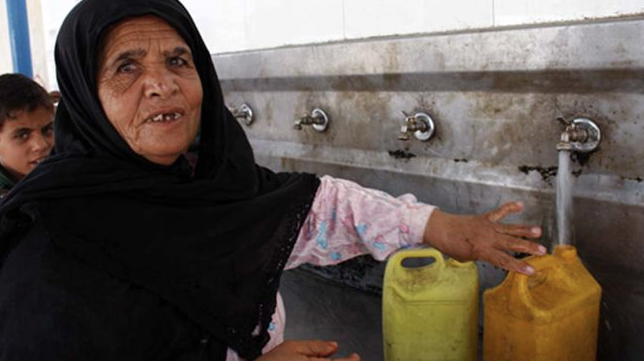A time to focus on the present
Imagine having so little water that daily tasks become nearly impossible. Water is so scarce that rituals like brushing your teeth, bathing, and anything pertaining to standard cleanliness fall to the wayside.
This is the sad reality faced by tens of thousands of Palestinians in East Jerusalem. As the population of the region continues to rapidly increase, the Israeli water pipes are no longer able to supply enough water for the expanding population. As residents of this area struggle for survival, it must be considered if debates of the Israeli-Palestinian conflict are worth denying tens of thousands their basic need of water.
This water shortage primarily affects the Shuafat Refugee Camp, an area home to more than 20,000 Palestinian refugees, victims of the conflict in the region. As East Jerusalem is part of the territory occupied by Israel, it is the responsibility of the Israeli government to provide water to the region. Although they have been effectively doing so for the past decades, the government did not expect the Palestinian population to expand so rapidly in such a short amount of time, and they were not prepared for the shortage of water that this region is now experiencing.
There have been cries of outrage throughout the region at the Israeli government’s lack of preparation for this situation. The water supply is quickly depleting, and although government officials claim that they can fix it within sixty days, some say that this is not soon enough. Just like any other country, the Israeli government is not perfect, and cannot be expected to anticipate every situation.
Palestinians around the world blame the water shortage on the Israeli occupation of the region; however, in reality, it is due to the poor judgment and preparation on the part of the Israeli government.
In 1947, the UN Partition Plan gave both Israel and Palestine their own independent states. However, surrounding Arab nations were outraged at the creation of an independent Jewish state in the region, and went to war with the newly formed nation. After a swift Israeli victory, they came to occupy some of the land once intended for the independent Palestinian state, and have remained there since. This water shortage has many Palestinians demanding the immediate withdrawal of Israel from this territory.
Although there are worldwide calls for liberation of the occupied territory, the water problem would be far worse under a newly liberated country.
A new country needs to be organized, and it is likely that one so new would be unable to provide for its citizens in its first few years of independent statehood. Newly formed regions and countries cannot become fully functional and organized immediately. If Israel removed itself from the region, those in the Shuafat Refugee Camp would not only be facing a shortage, but possibly a complete elimination of a basic necessity.
It would be impossible for Palestinians to set up their own water system overnight, and many would likely suffer.
The Israeli-Palestinian conflict is so disproportionately focused on the future of this small region that many are blind to the immediate need for the survival of those caught in the middle of it. The focus of this debate must be shifted to the present -- starting with the guarantee that inhabitants in the region will have access to the basic essentials for survival.
